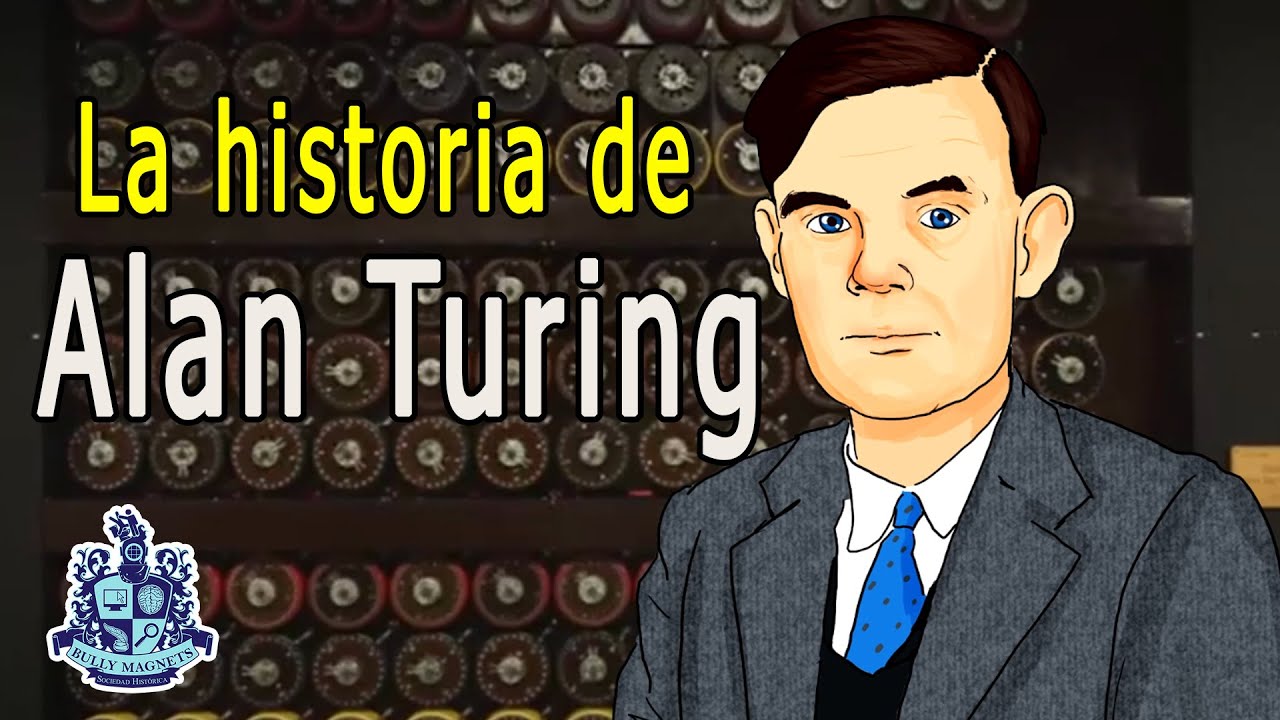Histoire De L'informatique Documentaire Film En Français
Summary
TLDRThe transcript delves into the evolution of computing, highlighting the contributions of pioneers like Ada Lovelace and Alan Turing, who laid the foundation for modern digital technology. It explores how the shift from mechanical to digital machines revolutionized problem-solving and computation, touching on significant moments in history like the development of encryption during World War II and the birth of the internet. The script emphasizes the transformative impact of technology, particularly the internet, and how it reshaped communication, information storage, and access, ultimately leading to the interconnected world we live in today.
Takeaways
- 😀 The digital revolution, brought by computing, has significantly transformed our world, making it crucial to understand and adapt to it.
- 😀 The beauty of design isn't just about aesthetics, but about the ideas and the thinkers behind it.
- 😀 Ada Lovelace and Alan Turing were pioneers in computing, laying the theoretical foundation for the digital age.
- 😀 The difference between thinking and calculating is profound: thinking is the nobility of the mind, while calculating is mechanical and systematic.
- 😀 The purpose of computing is to offload complex calculations to machines, allowing for faster, more accurate processing of information.
- 😀 Al-Khwarizmi, an Arab mathematician, was instrumental in developing algebra and introducing the concept of zero to the world.
- 😀 Charles Babbage conceptualized the first mechanical computer, the Analytical Engine, which laid the groundwork for modern computers.
- 😀 Alan Turing's work on universal machines revolutionized computing, proving that a single machine could execute any algorithm.
- 😀 The Enigma machine, used by the Nazis during WWII, was broken with the help of Turing’s ideas, contributing to the war’s outcome.
- 😀 The evolution of computing led to the creation of software, programming languages, and the rapid development of technology that changed communication, safety, and daily life.
Q & A
What was the impact of computing on the world as described in the transcript?
-The arrival of computing has significantly transformed the world, introducing a digital age. The script emphasizes the importance of understanding this transformation, not merely using technology but grasping why and how we interact with it, such as understanding why we click or how images are placed in society.
Who were Ada Lovelace and Alan Turing, and what role did they play in the history of computing?
-Ada Lovelace and Alan Turing are pioneers of computing. Ada Lovelace worked with Charles Babbage and is credited with developing the concept of algorithms for computing machines. Alan Turing, in 1936, laid the theoretical foundation of computer science and demonstrated that a machine could execute any algorithm, marking the transition from the industrial age to the digital age.
What is the significance of the algorithm in computing as per the transcript?
-The transcript explains that algorithms are essential to computing as they allow systematic and mechanical problem-solving. Algorithms, written in programming languages, provide instructions for solving specific problems, and their purpose is to transfer thought processes into executable tasks for computers.
How does the transcript describe the development of computing machines?
-The transcript describes the evolution of computing machines, starting with simple tools and progressing to machines capable of autonomous operations. Unlike mechanical machines, computers can modify their own programs, making them truly universal machines capable of executing a vast range of tasks.
What role did cryptography play during World War II, and how did it impact the development of computers?
-Cryptography played a crucial role in World War II, particularly with the Enigma machine used by the Nazis. The breaking of the Enigma code, facilitated by mathematicians and machines like the Bombe, significantly accelerated the development of computing. This event showcased the importance of automating processes for faster, more efficient problem-solving.
What was the role of the Bombe machine in breaking the Enigma code during WWII?
-The Bombe machine, developed by Alan Turing and his colleagues, mechanized the process of deciphering the Enigma code. By speeding up the code-breaking process, it played a pivotal role in shortening the war and furthered the development of programmable computers.
What is the connection between the early computers and the term 'bug'?
-The term 'bug' originated from an incident in early computers where a moth was found trapped in a relay, causing a malfunction. The event was logged as the first 'bug,' and the term has since become synonymous with software and hardware issues.
How did the development of the first programmable computers change the landscape of computing?
-The creation of the first fully automatic programmable computers marked a significant milestone in computing. With the introduction of machines that could be programmed in machine language, the development of modern computing was set in motion, opening doors to complex algorithms and more advanced systems.
How did the invention of the compiler change the use of computers?
-The invention of the compiler, developed by Grace Hopper, allowed programmers to write code in high-level languages, making it more accessible. This innovation simplified the process of translating human-readable instructions into machine code, significantly improving the efficiency and usability of computers.
What is the significance of Claude Shannon and André Kolmogorov's contributions to information theory?
-Claude Shannon and André Kolmogorov revolutionized the way we understand and measure information. Shannon introduced the concept of information as a mathematical quantity, while Kolmogorov contributed to the development of probability theory, which underpins modern information theory. Their work paved the way for digital communication and data compression technologies, like MP3s and images on the internet.
Outlines

此内容仅限付费用户访问。 请升级后访问。
立即升级Mindmap

此内容仅限付费用户访问。 请升级后访问。
立即升级Keywords

此内容仅限付费用户访问。 请升级后访问。
立即升级Highlights

此内容仅限付费用户访问。 请升级后访问。
立即升级Transcripts

此内容仅限付费用户访问。 请升级后访问。
立即升级浏览更多相关视频

Basics of Computer Architecture

O primeiro computador | Nerdologia Tech

Charles Babbage and Ada Lovelace: Early Computing | Heroes of Progress | Ep. 49

Alan Turing, la máquina enigma y la inteligencia artificial 🏳️🌈🤓🤖 Bully Magnets Historia Documental

Charles Babbage

Everything You Need To Know About AI - In Just 10 Minutes
5.0 / 5 (0 votes)
